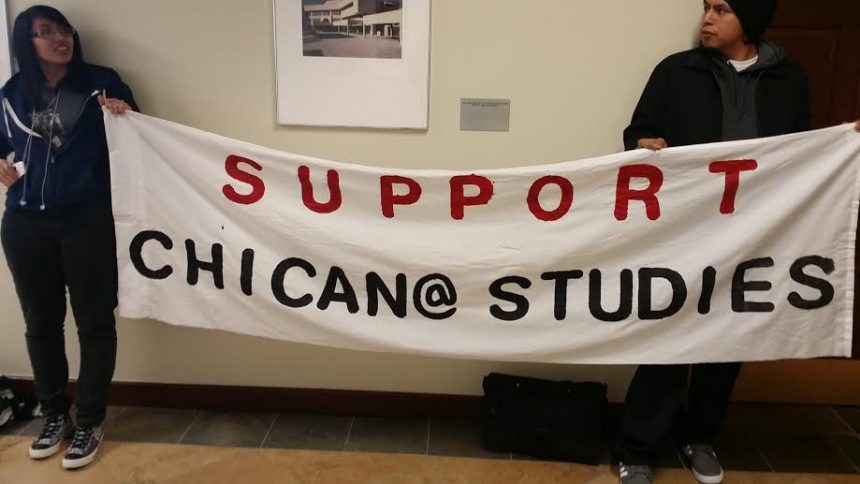Ethnic Studies programs, across the nation, are battling to exist. From the banning of books, to classes and entire curriculums disappearing, to prestigious professors getting fired, these programs have gone through incredible transitions and transformations recently. However, there have also been stories of success. Right now, at the University of New Mexico, the Chicana and Chicano Studies Program is going through a historic transition.

Growing up at the University of New Mexico, I was exposed to what would later become the most important Ethnics Studies program in my life. My mother, Rosemarie Romero, spent 25 years working between Chicana and Chicano Studies and The Southwest Hispanic Research Institute. These places of culture, empowerment, and pride became the spaces in which I was nurtured. Had I not been raised in this environment, I would not have had the privilege of learning about my own history. I believe that it is important for everyone to learn about their roots, as our histories make up the people that we are today; it runs through our veins.
The Chicana and Chicano Studies Program has existed at the University of New Mexico for over 45 years. Since its founding, professors, students, and supporters have fought to raise it to departmental status. On February 24th, 2015, that dream became a reality: Chicana and Chicano Studies became a department at UNM.
This is a historic moment for UNM, for people of color in New Mexico, and for people of color around the country. For Chicanismo to be recognized in this way could mean that this transition may spread to other educational institutions across the state, where Ethnic Studies programs are either lacking or do not exist at all. This is also the first ethnic studies program to become a department at UNM, which means we, as people of color, still have a lot of work to do.
Ethnic (Studies) Cleansing
Core history classes, both in public schools and schools of higher education, present students with a curriculum that idolizes colonialism and leaves out the bloody and revolutionary history of people of color. Because of this, students are not properly represented in what they learn. They are deprived of the opportunity to learn about themselves and their ancestors.
The education system is one of many institutions that is not inflicted with racist thought, but was actually built upon it. If knowledge is power, it is also the gateway to understanding and acceptance. When history classrooms and curriculums are not all-inclusive, racial bias, segregation, and discrimination become inevitable.
#GJCultureStrong
I am proud of the University of New Mexico for voting to transform the Chicana and Chicano Studies Program into a Department, and my pride will only grow once the other Ethnic studies programs receive departmental status as well.
This is a solid victory for our people, but it’s only the beginning. As a community filled with immense diversity, it is our responsibility to ensure that our education system is reflective of that diversity. Instead of removing Ethnic Studies from our schools, we need to be building them. Only when we are knowledgeable of ourselves and of each other can we truly understand the power of coexistence.
Que viva la gente!



Leave a Reply